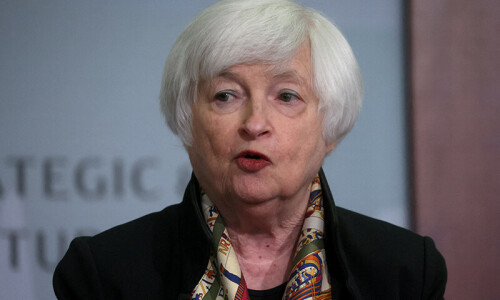NEW YORK: A long-term shift to low interest rates in major economies would heighten challenges to global financial stability by stressing banks and other financial companies, according to an IMF paper released on Thursday.
Part of the International Monetary Fund’s twice-annual review of financial stability, the report follows moves by the US Federal Reserve to lift benchmark rates in the last two quarters after a period of extraordinary accommodation following the 2008 financial crisis.
Nevertheless, rates in the US remain historically low, while other major central banks still maintain ultra-low interest rates.
Persistently low interest rates “would present a considerable challenge to financial institutions,” requiring “significant” changes to business models, the paper said.
“In such an environment, yield curves would likely flatten, lowering bank earnings and presenting long-lasting challenges for life insurers and defined-benefit pension funds.” Although the IMF paper did not predict a permanent shift to low rates, it said the implications of such an outcome must be considered. Low interest rates could become a feature of low growth in advanced economies with ageing populations and stagnant productivity.
The example of Japan suggests “an imminent and permanent exit from a low-interest rate environment need not be guaranteed,” the paper said.
Perpetually low rates pose challenges for banks by cutting into profits that traditionally come from the gap generated by their ability to borrow money at low rates for short periods while lending for long periods at higher rates.
That condition could force smaller banks to merge with each other or larger banks that may be less stressed because of greater regional diversification.
Low interest rates would also pose difficulties to the insurance and pensions sectors, which could no longer rely on interest-rate-based returns to meet future liabilities and may be forced to raise additional capital, the paper said. They may also need to shift to different product lines as consumers live longer, demanding fewer savings products and more health insurance.
Published in Dawn, April 7th, 2017














































Dear visitor, the comments section is undergoing an overhaul and will return soon.